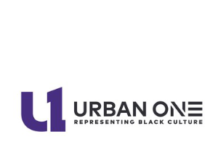
(By Harmony Tenney) Radio is specially-suited for meeting local government departmental objectives. Thankfully, these departments are given annual budgets, MUST use all dollars assigned to them, and face LOSS of those dollars the next fiscal year if they are NOT spent.
A myriad of government employees work hard every day to enhance the experience of local citizens, commuters, visitors and prospective residents. But what is shared via the daily news is full of what government, politicians, City Councilors and County Supervisors get wrong.
Radio campaigns for local governments have 4 main areas of focus: to help build awareness and educate the populous regarding issues that are facing a community; to increase participation in discussions, meetings and boards; to change behaviors such as water conservation, use of alternative energies, and proper disposal of household (and commercial) grease and fats; to position the local government as an “Employer of Choice.”
Building Awareness and Educating the Public is hard to do via “old school / standard” brochures, fliers and static websites. Yet radio has one-on-one time with 92% of U.S. adults, sharing the what and the why in conversational, intrusive audio. People repeat what they hear; give them talking points and they’re good to go share them.
- A utility department needed to pre-empt sewer clogs from Fats, Oils and Grease – more likely to occur at holiday gatherings and family dinners. Sharing how to properly dispose of these, and communicating how easily trackable the grease source is, helped homeowners avoid incurring substantial costs for clogged neighborhood pipes.
Increasing Participation across a population is hard to do on a thin budget. Typically, small (but important) government events where issues such as affordable housing, labor rights / living wages, discrimination, accessible healthcare and collaborative partnerships are discussed DO have a budget. These events are always announced via press releases, but radio is more immediate and impactful than the midnight deadline for tomorrow’s headline, or a quick mention on the TV’s News at 11p / 5a. Will the announcement even make their digital editions?
Radio can update copy to say “Friday,” “tomorrow,” and “this evening” as an event nears, driving urgency past the magnetized hustle of the day. Radio not only “gets the word out,” but brings more community members and stakeholders IN with its call to action.
- In rural areas, Fire and EMS departments rely on volunteers to respond to calls and perform a variety of support duties. Sharing messages of “why” folks volunteer and highlighting the moments where they realized the difference they’re able to make in the community filled up two entire training classes. Previously, it was rare to fill even one.
Behavioral Change is radio’s calling card. We share products and services from reputable companies with listeners that count on us as their referral partners, driving their purchase preferences and buying behaviors. Leveraging this for positive social, environmental, cultural and psychological behaviors creates an immensely powerful communal tide.
- Facing a drought, mandatory water restrictions and conservation behaviors were enacted, for residents as well as restaurants (only disposable dishes, flatware and cups were allowed). Radio was the primary messenger chosen to share these imperatives with everyone, frequently, until the crisis was over. Then, maintenance messaging was purchased, to continue conservation practices in readiness for the next such emergency, or to divert one completely.
Positioning Local Government as an Employer of Choice is more important than ever. Print has long been a mainstay for recruitment, and it still has a strong hold of mindshare, but radio has the ability to communicate the CULTURE of a hiring entity, to drive candidates DIRECTLY to an application-receiving website and to share more about the job than just a dry HR definition.
Radio recruitment has allowed H.R. to instill a sense of both pride and updated relevance to working for local governments. Since radio streams, adults (and those in their network) from other parts of the nation / world can learn of the open positions. Former and prospective residents (and alumni) can engage as well.
- School systems need bus drivers, and an annual job fair has brought community members forward to answer the call. More folks attending the fair have mentioned they learned about it via the radio (unusual, I know). Running ads until the last hour of the job fair has also brought adults to the job fair because “it’s happening right now.”
How it Works: Giving government department heads an alternative to what they’ve been doing, showing them the cost efficiency and sharing testimonials for radio recruitment (and complementary digital campaigns), allows them to explore something new, that’s also tried and true. Make sure to have a script already written, and produced, so that this “new thing” is completely “Done for You,” and Turnkey.
Formally deciding what your station can offer local government departments is imperative. Consider offering either a government discount – 33% is industry standard in most “business to government” sales (but guard your political rates) – or a 50% bonus (these are the same proportion mathematically). You might also elect to include government messaging in PSA rotation, as it does involve the community. NO OTHER MEDIA is offering them this. These entities have to fight for their budget, and you can magnify their investment FAR BEYOND any prior media buys.
Please note: government entities have different fiscal years than most businesses, usually July 1 to June 30th. And, since the next year’s annual budget depends on each department spending every last penny of its current year’s allocation, government departments can have unallocated dollars that need to be spent (and invoiced) in April, May and June. Make sure to call on ALL your departments, helping to ensure they get the same or more dollars next year. Make sure to also strategize the coming fiscal year during that conversation, as you want to be an indelible part of the upcoming budget.
BEST GOVERNMENT DEPARTMENTS TO PROSPECT
Here are a few great places to begin your local government client relationships:
Department of Utilities: best practices, local events and safety messaging
Transportation Authority: new and updated route info, recruitment for all positions
Schools: community engagement, recruitment, enrollment for adult and community programs
Parks and Rec: events, enrollment in programs, pools, ponds and park info
Fire Department: fire safety week, recruitment, fire safety PSAs all year
Police Department: recruitment, crime prevention messages
Bike and Pedestrian Safety: events, safety messages, new bike lanes / routes
Economic Development Office: messages positively branding their projects
Solid Waste, Landfill, Recycling Service Departments: events, correct disposal protocols
Human Resources: job fairs, recruitment (sometimes by several departments ‘going in together’ fiscally to get a bigger buy).
Harmony Tenney, MBA is a Marketing Consultant at Charlottesville Radio Group. She’s been involved in sales and service of intangibles for nearly three decades. She’s a contributing author to six business books: Great Legal Marketing (Ben Glass, 2012), ROI Marketing Secrets Revealed (Richard Seppala, 2010), Uncensored Sales Strategies (Sydney Biddle Barrows, 2008), Exercising Your Imagination (Steve Rae, 2003), Life Balance (Alan Weiss, 2003) and Accidental Magic (Roy Williams, 2001). She can be reached by e-mail at [email protected]






Probably one of the most useable articles RadioInk has run. Keep this up, Ed, and you’ll have a publication.